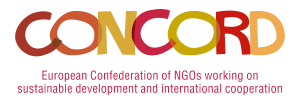The anticipated AidWatch 2023 report, released today by CONCORD, reveals critical issues in the allocation and reporting of Official Development Assistance (ODA). The report scrutinises the European Union (EU) and its Member States ODA efforts, presenting a stark contrast between reported figures and the reality of where the aid is truly directed.
While Official Development Aid (ODA) figures are reportedly at record highs, the AidWatch 2023 report shows how the EU and its Member States have managed once again to claim billions as aid that did not meet the most basic criteria to qualify as ODA. In monetary terms, it means close to EUR 20 billion – more than 1 euro in every 5 – is called aid but never reaches the intended communities in the majority world.
The EU, as a major ODA actor, has a crucial role to play in reducing inequalities both between and within countries. However, AidWatch findings show that current ODA allocations are still responding, to a large extent, to domestic and geopolitical interests rather than supporting partner countries’ own priorities.
ODA inflation has reached a new record, while many European governments cut their budgets for development cooperation and humanitarian assistance. We see a worrying erosion of Europe’s solidarity with those left furthest behind.
The report elaborates on how current OECD DAC standards for defining and reporting on ODA are actually diverting aid from its intended purpose. These standards allow for the inclusion of flows like the counting of in-donor costs like support for refugees (a legal obligation under international law) or imputed student costs; the double-counting on ODA loans and debt relief. These flows do not meet the core criteria for ODA, leading to the misallocation of funds away from genuine efforts to support partner countries:
- The inclusion of in-donor refugee costs has placed many EU Member States in the peculiar position of being the primary recipients of their own aid – this is specially the case of a number of Eastern European countries. Overall, they inflated ODA figures by almost EUR 14 billion.
- Another significant factor contributing to aid inflation is the overestimation of ODA loans, Overall, artificially inflating EU ODA levels by an additional EUR 1.7 billion.
On a country-by-country basis, the AidWatch report highlights significant disparities in aid efforts:
- In 2022, only three countries, Luxembourg, Sweden, and Germany, met the collective commitment made in 1970 to allocate 0.7% of their GNI to ODA, as per reported figures.
- Denmark, for the first time in four decades, fell short of the 0.7% target in 2022.
Failing to comply with the internationally agreed-upon 0.7% target only makes it more difficult to reverse the setbacks of the pandemic, conflicts and the climate crises, which could jeopardise four decades of global human development progress.
The AidWatch 2023 report demonstrates how ODA can be a powerful tool for reducing inequalities if used strategically. It advocates for ODA allocations that prioritise partner countries’ needs and objectives, rather than responding to donor countries’ geopolitical or economic interests.
Media enquiries:
Camilla Falsetti, Communications and Media Officer
Email: camilla.falsetti@concordeurope.org
Notes to editors
CONCORD: CONCORD is the European Confederation of NGOs working on sustainable development and international cooperation, made up of 26 national associations, 25 international networks and 7 associate members that represent over 2.600 NGOs, supported by millions of citizens across Europe.
AidWatch reports: Since 2005, CONCORD’s annual AidWatch report monitors the quantity and quality of EU Official Development Assistance. It holds the EU accountable for their commitment to allocate 0.7% of Gross National Income (GNI) to ODA by 2030.

